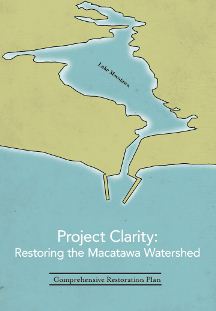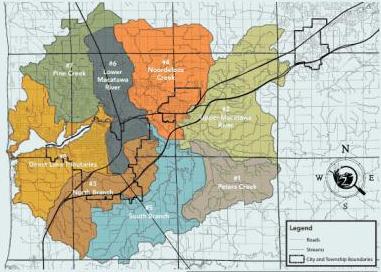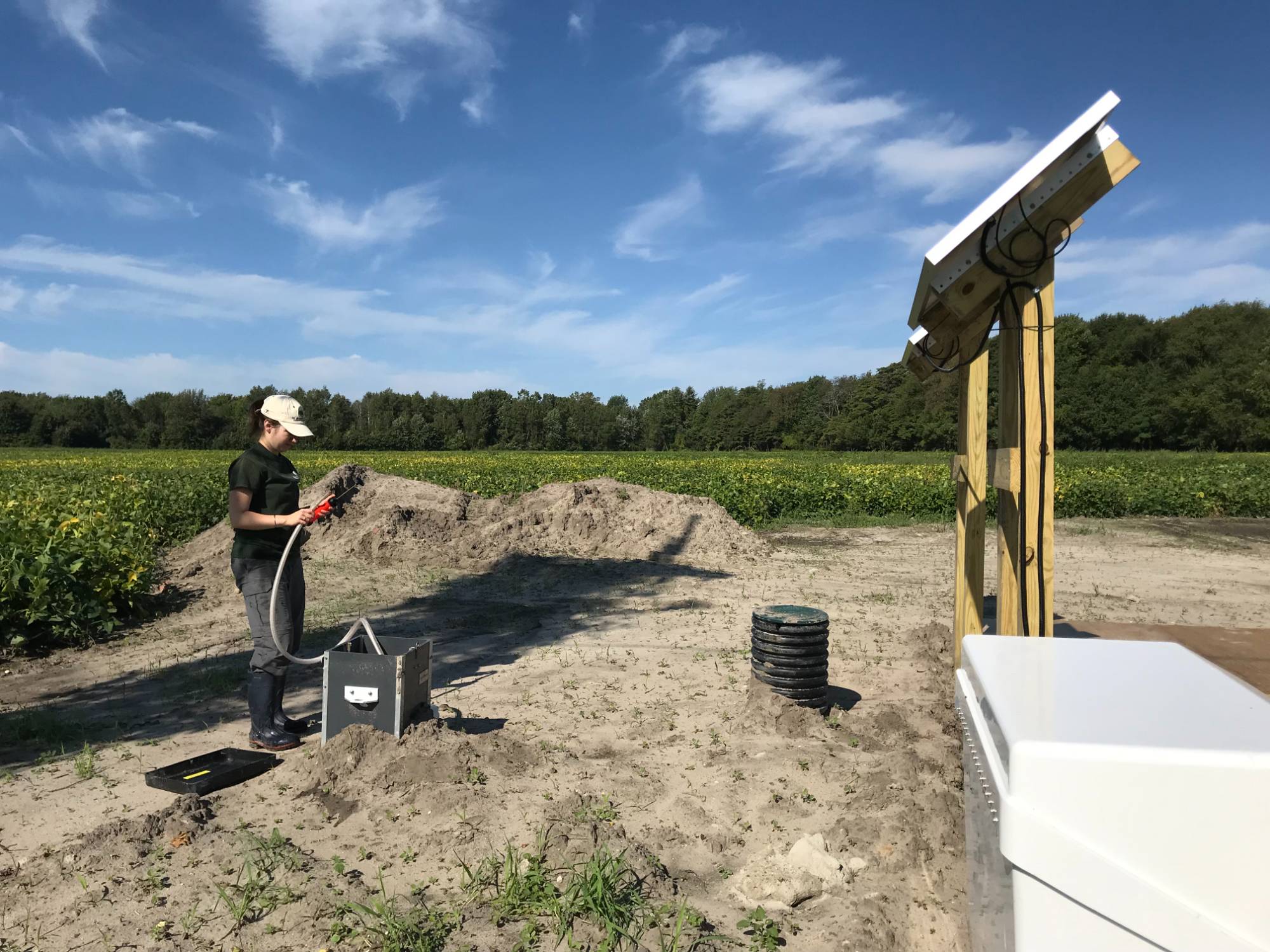Project Clarity: Restoring the Macatawa Watershed

Project Clarity is a large-scale watershed restoration, education, and public-private initiative aimed at dramatically improving water quality in Lake Macatawa and the Macatawa watershed, located in west Michigan.
The project involves a multi-phased approach, providing solutions focused on land restoration, Best Management Practices (BMPs), community education, and long-term sustainability. This major endeavor will take an estimated 10 years and $12 million to complete. As a Legacy Project, it will have a lasting and profound impact on the economy, environment, and community as a whole.
A recent study identified areas within the Macatawa watershed that are contributing the highest levels of sediment, nutrients, and bacteria. It was found that the majority of pollution problems originate in rural areas of the watershed, forming the foundation of the current's project's approach to cleaning up Lake Macatawa.
A three part approach was determined to be the best way to address the issues identified for Lake Macatawa and its watershed:
- Wetland restoration and engineered water quality solutions
- Water quality Best Management Practices (BMP) implementation in urban and agricultural areas
- Community information and education about the issues impacting water quality within the Macatawa watershed
AWRI is serving as technical advisors and scientific consultants by conducting ongoing field research, assisting with the development and implementation of restoration initiatives, developing and running watershed models, and building a restoration database. We will conduct pre- and post-restoration monitoring of passive wetland restoration areas, engineered solutions, and BMPs.

Priority sub-basins for restoration in the Macatawa watershed.

Monitoring water quality in Lake Macatawa
Among the many expected benefits of the project are increased property values; increased flood capacity storage and filtration; increased tourism, water-based recreation, and waterfront business development; reduced human health and safety concerns due to reduced bacterial runoff; and improved ecological health through wetland habitat and fisheries restoration.
A collaboration between Project Clarity partners, landowners, and the Michigan Department of Agriculture and Rural Development (MDARD) led to an additional monitoring effort to assess the use of iron slag as a best management practice to reduce P loading in the Macatawa watershed. Iron slag, a waste product from the steel industry, can chemically bind P and has been implemented previously in agricultural settings. Interest was expressed as to whether iron slag filters may be an effective management practice in the Macatawa watershed. Three filters were installed by 2020 and AWRI evaluated the efficiency of these systems in removing P, while also monitoring for the presence of potentially toxic chemicals leaching from the slag, which may be released into surface waterways. It is our understanding that these filters are the first application of their kind within Michigan.

Measuring water quality in tile drain discharge flowing out of an iron slag filter.
Visit the Project Clarity website for more information: https://outdoordiscovery.org/project-clarity/
Funding for this project is provided by various private donors.
Project Partners: Outdoor Discovery Center Macatawa Greenway, Macatawa Area Coordinating Council, Hope College, Niswander Environmental, Progressive AE, Jim Edewaard, Smith Haughey Rice & Roegge
AWRI Contacts:
Al Steinman, AWRI Project Manager: [email protected]
Mike Hassett, Lead Technician: [email protected]

